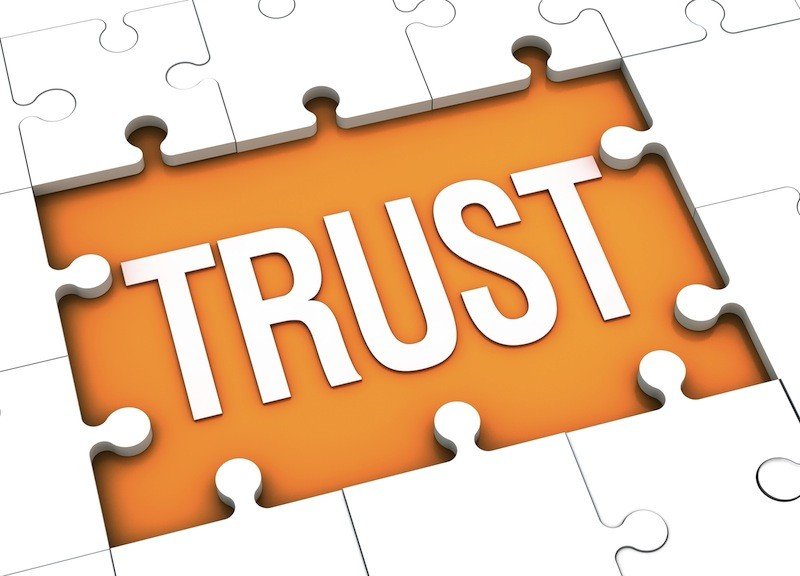Trust is the unwritten social contract that underpins everything in our society. We all know how it feels when trust is broken or lost. More importantly we all understand what the effects of a loss of trust can be.
Yet trust allows us to great things. Through trust we can work together effectively. We can rely on our friends and family. We can speed up communication and action.
All because of trust.
Trust in Business
Trust relationships also cement every business activity. Trust in business exists through our external interactions with other organisations while internally it draws our business together. At the most basic level trust is needed for every employee contract or commercial transaction.
But trust in business is a much more vital concept in the 21st Century. As the certainties of the past are being undermined, economics and performance are being affected.
Is the concept of trust in your business a central part of your strategy?
The Meaning of Trust
Trust, in brief, is the confident expectation of something. Whether we are working at the highest level of a business or as an employee we all need to be confident in something in the future. We expect that our business will continue or our job will be safe.
Yet trust is sidelined as too ‘fuzzy’ to be measured or understood. It certainly can’t be applied. This simply is not true. We measure the effects of trust everyday.
What areas are affected by trust in business?
1. Turnover and Profit
2. Sales Performance
3. Referred Business
4. Employee Satisfaction and Engagement
5. Productivity
6. Project and Product Delivery
7. Customer Satisfaction and Loyalty
8. Brand Awareness and Marketing
The Measure of Trust
We can see the effect of trust but what would be the impact if we could go straight to the source and measure it directly?
It is safe to say that what and who we trust, we value. In business, what we value can be broken down into five different aspects.
What areas are affected by trust in business?
Innovation
Sometimes you need creative solutions and plans, ‘out of the box thinking’. Who do you value for this aspect? Chances are you trust them as well.
Communication
Every business needs good communication, internally and externally. The ability to listen and share information is a valuable skill and ability. Who do you trust most in this aspect?
Service
All businesses need to take care of the people that matter to them, whether that is team members or customers. Who do you rely on most to give excellent service?
Measurement
If we don’t know how we’ve done, how do we get better? Who do you lean on most for your measurement and reporting?
Spirit
This is the ability to stay resilient and positive. This is often the quality of leadership. Who do you trust to lead?
If a business or a team member loses their value in one of these aspects, it is easy to undermine what else they provide us. By assessing all five areas we can quickly become aware of where we have hidden, unused talent that can be unlocked.
If you want to learn more about TRUST and it’s importance in both the workplace and life you will not want to miss The Trust Conference. Book now to benefit from the early bird discounts

Julia Felton (aka The Business Wrangler) is the founder of Business HorsePower. Business leaders, entrepreneurs and executives hire her to accelerate their business performance by harnessing the energy of their people to work more collaboratively together. By aligning purpose with actions the team achieves exponential results as everyone starts pulling in the same direction.
Julia believes that business is a force for good and through designing purpose-driven businesses that leverage the laws of nature, and the herd, you can create businesses founded on the principles of connection, collaboration and community that make a significant impact in the world.






